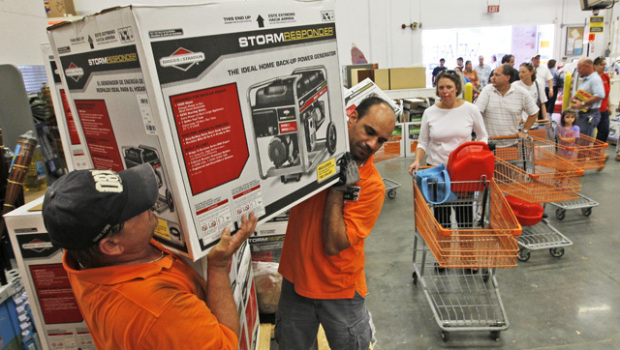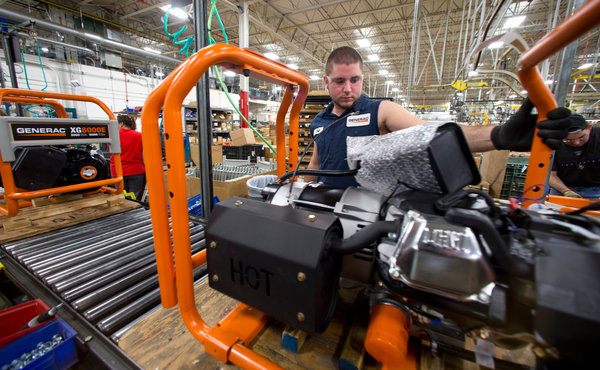Generators: Keeping You Out of the Hot Seat

After tearing through towns, hurricanes can leave residents in the unbearable heat of powerless homes. And unfortunately, inhabitants are no match for the high summer temperatures of hurricane season. But are generators worth the price you pay to keep your beloved electricity and air conditioning running? Don’t sweat it, compare the facts!
To Buy or Not to Buy
Going without a power-supply for the use of televisions, computers, and other electronic devices may seem like the end of the world for some. But for many, justifying the hundreds or thousands of dollars spent on generators may be another story. Determine if a generator is essential to your future by evaluating the practicality and usefulness of this power-restoring system.
Include the following in your decision-making process:
1. Necessities: Electricity isn’t a necessity for all. So if you are a fully-prepared hurricane warrior and have a proper kit of non-perishable foods, flashlights, batteries, and other required items, a generator may not be the thing for you. A generator may be considered a luxury for some. Yet for others, losing power can remove the accessibility to emergency tools and medical devices.
Residents who are more susceptible to extreme temperatures such as elderly or anyone who has children should consider purchasing a generator to ensure safety.
2. Types and Costs: Generators are available in a range of models and prices. The model of generator bought will depend upon the types of items you wish to be backed up. To continue running refrigerators, furnaces, and heat sources, a permanent generator should be purchased. For smaller items, portable models may be more practical.
Keep in mind that opting for a hefty permanent generator typically carries a hefty price tag as well.
 3. Benefits of generators: Owning your own generator comes with many benefits including:
3. Benefits of generators: Owning your own generator comes with many benefits including:
- house lighting
- keeping homes cool by powering fans and air conditioning (larger generators)
- heating in cooler areas to avoid freezing pipes
- capabilities of providing hot water
- maintaining power for telephones and devices for emergencies
- supplying electricity to recreational items such as TVs and radios
If you have chosen to buy a generator, make the purchase before disaster strikes to avoid ramped up prices and shortages. It is important to have a professional install permanent generators and a switch so that the generator will turned on automatically once the power goes out.
Generator Safety
After purchasing a generator, be aware of the safety guidelines of implementing this electricity-restoring device. Read all instructions and warnings packaged with the generator. Improper use of a generator can result in carbon monoxide poisoning, fires, and even death. Some of the most important tips include:
- set up generators at a minimum of 20 feet away from the home/building and away from any sources of ventilation (windows, vents, and doors)
- do not store generator fuel near the generator; keep fuel in a closed container away from people
- when refueling, turn off the generator, allow it cool for several minutes then add more fuel
- prevent theft by chaining the generator to a tree
- ensure that levels of carbon monoxide do not become too high; install and keep extra batteries for a carbon monoxide monitoring system.
NBC claims that roughly 50 persons die each year from carbon monoxide poisoning associated with generator use. Following these guidelines can keep you and your loved ones out of harms way after the storm. Don’t become a victim of unsafe use of a generator.
Make hurricane season a breeze by reading more information and tips on hurricane preparation at national-hurricane-center.org.

Recent Comments